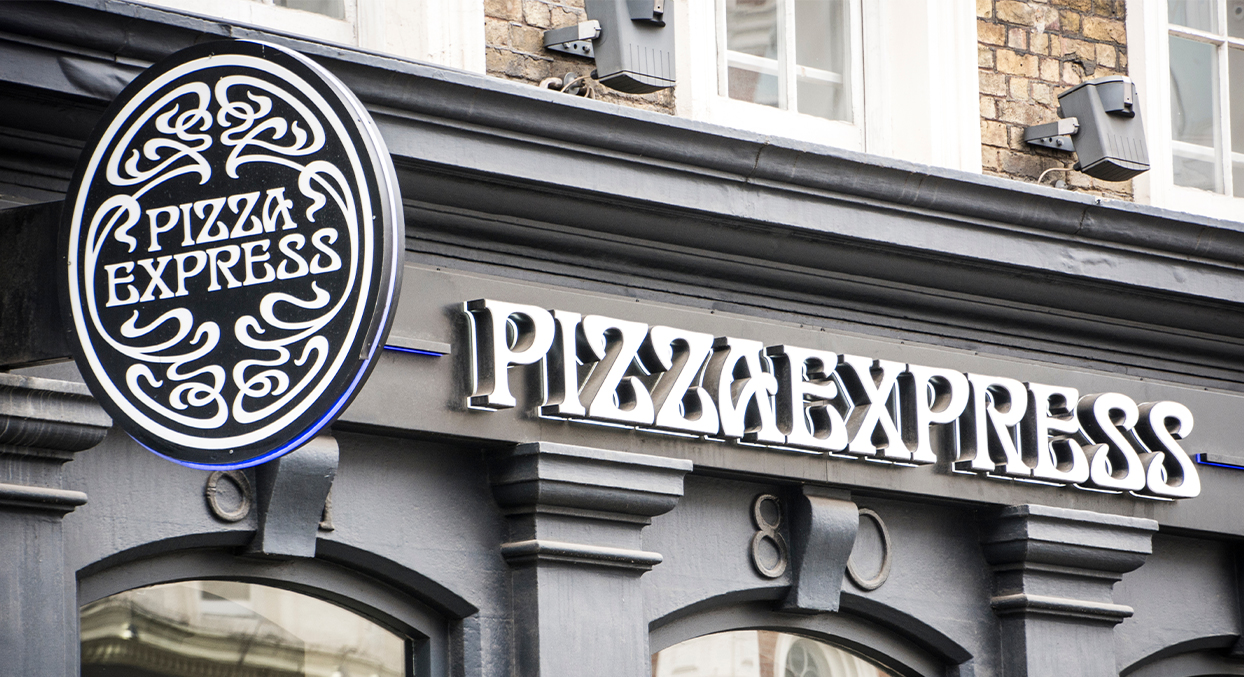Years after the initial Financial Conduct Authority test case returned a pro-policyholder ruling, disputes continue around the extent to which companies affected by Covid-19 can claim business interruption insurance. Our Policyholder Disputes team leads on the latest in a series of test cases which could further extend the coverage available.
These come shortly following the launch of the new Stewarts Covid Claims Service, which will help businesses that were heavily impacted by Covid-19 recover payment from their insurers. Subject to the terms of each insurance policy, it is expected there are still many thousands of policyholders who could collectively recoup tens of millions of pounds in business interruption losses from their insurers as a result of the pandemic.
Aaron Le Marquer, Head of Policyholder Disputes, spoke to Insurance Insider about the next precedent-setting cases in this series of litigation, in an article reproduced in full here.
The impending cases
Several BI cases involving Liberty Mutual are set to be heard together in the coming days to examine the last major coverage point under dispute, namely the non-damage denial of access (NDDA) clauses, which will have a material impact on insurers that provided cover under these clauses.
The case is also crucial to insurers more generally in terms of how furlough payments are treated, with the potential for claims to deteriorate if a decision goes against insurers.
Seven of the eight cases are being brought against Liberty Mutual, with some including Allianz, Aviva and Swiss Re as additional defendants, while the claimants span owners and operators of hotels, luxury retail and entertainment groups, racecourse operators and proprietors of bowling centres.
The seven cases have been brought together as each of these claims hinge on three common issues that demand further examination, namely issues of liability regarding prevention of access wordings, policy limits and how furlough payments are to be treated in settlements.
While the majority of the cases centre on prevention of access policy wording written by Liberty Mutual, the treatment of furlough payments is one of market-wide importance to insurers.
A decision against the insurance industry could “increase the insurers’ overall exposure by another 40%-50% up to 100% in some cases, even on claims already paid”, according to Aaron Le Marquer, partner and head of policyholder disputes at law firm Stewarts who is representing two groups of claimants in this trial.
Until last week, the trial included a case against Liberty Mutual and XL by the PizzaExpress group of restaurants, but this has since been settled for an undisclosed amount.
In total, the claimants in these seven cases are seeking approximately £227mn from the insurers.
Le Marquer added that the outcome of the seven cases will have wide-ranging implications as it will affect “lots of other policyholders who are insured under the same policy wording or similar policy wordings, either with Liberty Mutual or Allianz or any other insurer”.
So far, regulators have tallied £1.5bn of payments from UK insurers to businesses over Covid BI losses.
NDDA clauses
The prevention of access policy wordings were first examined in the Financial Conduct Authority (FCA) test case for BI cover in May 2020, following disputes between policyholders and insurers about whether certain clauses provided cover in the event of business shutdowns caused by the British government’s lockdown measures.
In September 2020, the High Court found largely in favour of policyholders on many issues except the denial-of-access wordings, which it ruled were generally related to specific localised dangers that would not extend to a nationwide pandemic, sparing insurers many claims.
This ruling was not appealed by the FCA, and as a result, many insurers did not pay claims under the provision of access wordings.
But during an appeal in early 2021, the Supreme Court decided the High Court’s interpretation of denial-of-access clauses was “too narrow”, finding that each and every occurrence of Covid-19 in the country was an equal and effective cause of loss.
This analysis helped restaurant group Corbin & King win a case against Axa in the High Court in March 2022, as the Court agreed the firm had cover under NDDA wordings and that it could aggregate claim limits for each of its restaurant sites rather than making only one group claim.
Despite this decision, some insurers including Liberty Mutual are arguing that the High Court’s test case ruling should be followed.
In each of the seven cases bound together in the upcoming trial, “there are nuances because each of the wordings is slightly different”, said Le Marquer.
The prevention of access wordings largely involve three areas of broad variation: the cause of the prevention, which can recognise a range of authorities including police, statutory, medical, and government; whether the business impact was a result of the prevention by authorities; and the policy trigger type, which is probably the main area of variation.
The Liberty non-access clause common to many insurers is as follows: “Under Business Interruption loss following interference with the Business carried out by the Insured in consequence of action by the Police or other Statutory Authority following danger or disturbance within one mile of the Premises which shall prevent or hinder use of the Premises or access thereto or, interference with the Business carried out by the Insured.”
Broadly, the insurers contend that NDDA clauses in the policies only provide “a narrow localised form of cover” for a local danger within one mile of each claimant’s premises rather than providing cover in respect of measures introduced to deal with a national pandemic.
Some of the insurers also reject coverage under the NDDA clause by arguing that the UK government was not a “statutory authority” or a “policy authority” within the meaning of the particular clauses and if they are wrong, the action of the government was not caused by a danger or disturbance within one mile of the insured premises.
The uncertainty is shown by the fact that when the FCA last updated statistics on BI payouts, many were not yet settled.
Furlough payments
There has been long-standing debate about how UK government support to businesses over lockdown, known as the Coronavirus Job Retention Scheme, should be addressed when assessing the claimants’ losses. The question of whether these furlough payments should be deducted from the indemnity when calculating sums recoverable under the policy was first addressed during the confidential Hiscox Action Group arbitration, which occurred alongside the FCA test case. The outcome by the tribunal, which found that insurers should not deduct furlough from the claims paid, was leaked to the press.
The first public decision in this jurisdiction was the Stonegate trial in October 2022, in which the pub company, which owns brands such as Slug & Lettuce, sued MS Amlin, Zurich and Liberty Mutual in a dispute over its BI coverage during the pandemic.
The court’s verdict on furlough was a decisive victory for insurers, ruling that furlough payments could be deducted from insurance payouts.
While the treatment of furlough payments will be the key issue in the Stonegate appeal, which is set for next month, it also remains a key issue in the upcoming Liberty trial, albeit in slightly different form.
The key difference in the Liberty cases is that these cases require the “dangerous disturbance” to be within a mile of the premises whereas in the Stonegate case the policy responded to Covid-19 anywhere in the country.
In the Stonegate case, it was argued that the policyholders received the furlough money because of the insured peril, which was Covid-19 in the whole country, while in the Liberty cases, the policyholders are claiming that the furlough money was not received because of a dangerous disturbance within the local vicinity.
In the upcoming trial, the insurers are arguing that they are entitled to deduct furlough payments from the claim indemnity, because the money the claimants received from the government lowered the cost of wages, and therefore reduced the loss suffered by the claimant.
However, the claimants allege that they still had to pay the wages, and that any money received from the government was intended to support the businesses, not the insurers.
The furlough payment issue is important “in relation to all the claims which have already been paid and also those which haven’t been paid yet”, said Le Marquer. “The furlough issue will make a big difference as to how much those claims are worth. Some of the claims can be doubled, or some claims are wiped out because of furlough.”
Policy limits
In terms of the quantification of losses, another key issue at the upcoming trial concerns the aggregation of claims and application of deductibles.
The aggregation issue could be particularly troubling for insurers, due to the amount that it could inflate the overall claim quantum.
This issue was examined in the Corbin & King case in early 2022, when the High Court found that Axa was bound to pay the restaurant group for losses at each of its separate London premises up to a maximum amount of £250,000 for closures in March, September and November 2020.
However, in October 2022 the High Court found in favour of insurers in the Stonegate case on the key issue of aggregation. Stonegate claimed it was entitled to a separate insurance limit for each of its 760 individual venues, amounting to a total of £1.1bn, and all the claims were brought under the Marsh Resilience wording.
In the upcoming trial, the insurers, in general, contend that if there is coverage, the claimants are each entitled only to a single limit of liability (between £500k and £2.5mn depending on the policy) even though most of the claimants had multiple premises and suffered multiple restrictions over the course of the year, and suffered losses many times in excess of the limit of liability.
The claimants, however, are arguing that each of their premises or group companies is entitled to a separate limit of liability, meaning that they can recover the full losses claimed.
Reserving
The judgement in this case could have a significant impact on insurers’ reserving decisions as the quantum of the losses could swing depending on the outcome of each issue.
Allianz is “adequately prepared for these events”, according to Lee Watts, director of technical claims for Allianz Commercial. “So it won’t have any impact from a reserving perspective.”
He added that Allianz has a “smallish exposure” to NDDA clauses, while also highlighting that the current BI litigation will probably be appealed such that cases will continue into 2027. “And even then, there will be outstanding elements about litigation, so nuances to particular policy wordings,” he said.
“I know insurers have been criticized in the press for not making decisions on policy wordings, but I think you’ve only got to look at the fact that the best judges in the whole of the UK made the decision on the FCA test case, that was then overturned by the Supreme Court, and there is ongoing views from all the legal experts in the land on most of these cases, and nobody’s fully aligned on it, “ he said.
“So I think that kind of highlights the complexity that’s ongoing.”
The eight-day trial will commence on 24 October.
You can find further information regarding our expertise, experience and team on our Policyholder Disputes page.
If you require assistance from our team, please contact us or alternatively request a call back from one of our lawyers by submitting this form.
Subscribe – In order to receive our news straight to your inbox, subscribe here. Our newsletters are sent no more than once a month.





